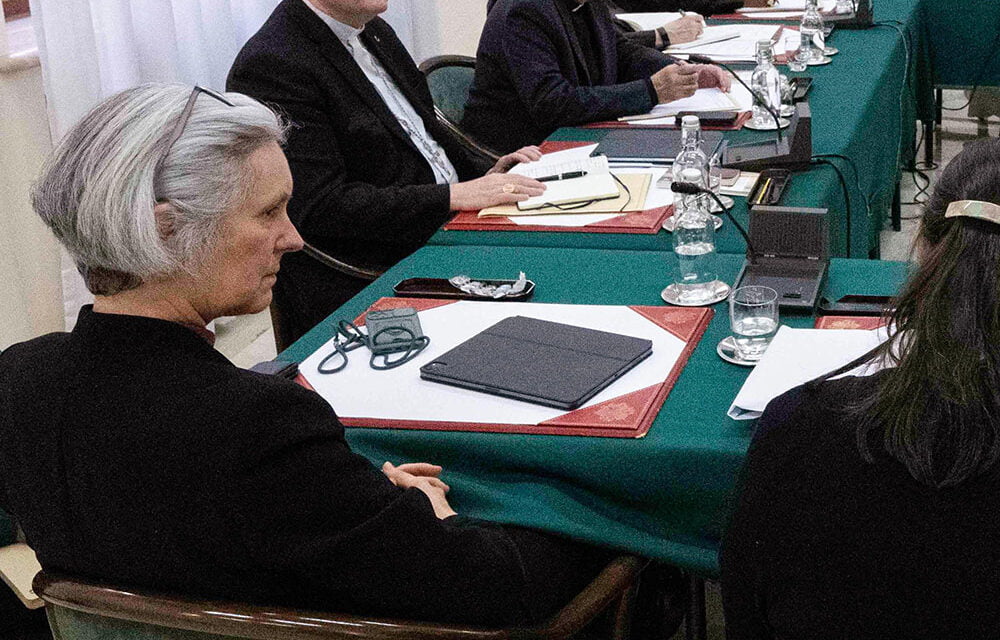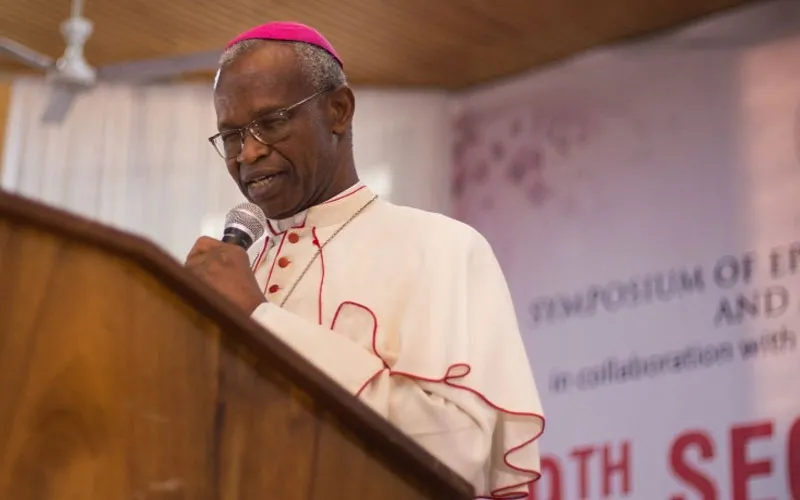An Anglican woman bishop who addressed Pope Francis and his advisory Council of Cardinals says she believes the pontiff took a « risk » in extending her an invitation to speak to the group and hopes that the Catholic Church will continue to explore the topic of women’s leadership with « courage. »
« I’m aware — not least from various reactions in the aftermath — that to many such an opportunity feels rare, if not historic. I am thankful for the privilege, and equally want to honor the risk Pope Francis surely took in welcoming it, » Bishop Jo Bailey Wells, deputy secretary-general of the Anglican Communion, said in an email interview with the National Catholic Reporter following her visit to Rome.
The Correspondent of RECOWACERAO NEWS AGENCY, RECONA, attached to the city of the Vatican narrated that Bishop Wells was one of three women who on February 5 met with the pope and what is often referred to as his « C9 » group of nine cardinals that meets quarterly in Rome to advise Francis on church governance.
While the group has historically focused its meetings on the reform of the Vatican’s bureaucracy, during its last two meetings the body has discussed the role of women in the church. « It suggests that he sees the value of ecumenical engagement not only for collaboration between churches but for listening and learning from each other, » Wells said of the pope’s decision to include both women and an Anglican for the first time at the usual all-male meeting.
According to Wells, Salesian Sr. Linda Pocher, a professor of Christology and Mariology at Rome’s Pontifical Faculty of Educational Sciences « Auxilium, » organized the session at the request of the pope.
Wells’ invitation came unexpectedly late last autumn. Pocher asked her « to speak to the story of the ordination of women in the Church of England and in the Anglican Communion, offering a personal perspective as well as the broader ecclesial journey, » Wells said.
It will be recalled that in his 1994 apostolic letter Ordinatio Sacerdotalis, Pope John Paul II wrote that the Catholic Church has « no authority » to ordain women as priests — a position that Francis has repeatedly upheld. But throughout his decadelong papacy, Francis has also expanded the Catholic Church’s dialogue with both the Anglican Communion and on women’s ministries.
Wells said that during her morning with the pope and his top advisers, she told the story of Li Tim Oi, who in 1944 became the first woman to be ordained to the Anglican priesthood. At the time, male priests couldn’t visit Tim Oi’s Chinese congregation in Macau, leading to her ordination under exceptional circumstances. Nearly half a century later, in 1992, the Church of England’s General Synod voted to ordain women, though subsequent legislation allowed for certain parishes not to accept ordained women as priests.
Among those women first ordained as priests soon thereafter was Wells, who in 2016 was made a bishop. Along with having taught at Duke University and Cambridge, Wells is now the bishop for episcopal ministry based at the Anglican Communion Office, which helps resource and foster connections between Anglican bishops.
In Rome, Wells said, she discussed the « levels of decision-making regarding women in the three orders of deacon, priest and bishop » with the pope and cardinals. « Even though I am utterly convinced that God calls women to sacramental ministry through the ordination of women to all three orders — not least because I have experienced the challenge and privilege of this calling myself — my greatest longing for the Catholic Church is that every member may be affirmed and empowered in ministry as well as in discipleship, in God’s way, and in God’s timing, » she told our Vatican Correspondent. ‘I hope that the gift of tradition may be seen to empower rather than hamper the possibilities for innovation.
In a Twitter message later, the RECOWACERAO NEWS AGENCY Vatican Correspondent gathered that Bishop Wells deeply appreciated the fact that the pope and the cardinals « listened graciously, which gave evidence in their questions and the discussion which followed. »
In addition, she noted that she was impressed by the Vatican’s ongoing synod on synodality, where for the first time ever, Francis extended the right to vote at the synod to the laity, including women, at last October’s session. Among the topics discussed inside the synod’s deliberations were questions about the ordination of women to the diaconate, as well as the priesthood.
The « urgent need » for expanded roles in women’s ministry, as the synod’s synthesis report described it, is expected to top the agenda when synod delegates reconvene in Rome this October.
« We might expect that, whatever the path ahead in terms of women and ordination, the Spirit will be at work to affirm and harness the gifts and graces invested in women for the sake of the whole body of Christ, » said Wells of the synod.
After the conclusion of the pope and his cardinals’ meeting with the three women, Pocher — the Spanish Salesian who organized the gathering — said she believes that Francis is « very much in favor of the female diaconate, » but that women’s ordination remains out of bounds for him.
Even so, Wells said that she is impressed and hopeful after her time at the Vatican and that she hopes her meeting with the pope’s top leadership encourages the conversations to continue.
« I hope that the gift of tradition may be seen to empower rather than hamper the possibilities for innovation, » she said. « I hope the conversation on the particular place of women will help to build a model of ministry in which every member — male and female — plays an active role. I hope the church will continue to explore the particular topic of the role of women with courage, listening to the voices of women as well as men as it deliberates theologically and canonically, in the expectation that we (ever) have much to learn. »
Wells added, « I hope the church may welcome and be stretched by the differing voices in this conversation and thus come to appreciate how diversity itself may be a gift for expanding our horizons and enriching church life. Not just diversity in terms of male and female, but diversity in terms of viewpoints. »
- CATHOLIC ARCHBISHOP IN GHANA HAILS POPE LEO XIV AS GOD’S GIFT - 23 mai 2025
- POPE LEO XIV TO APPROVE CANONIZATIONS - 22 mai 2025
- THE EVOLUTION OF PAPAL TRANSPORTATION - 20 mai 2025







